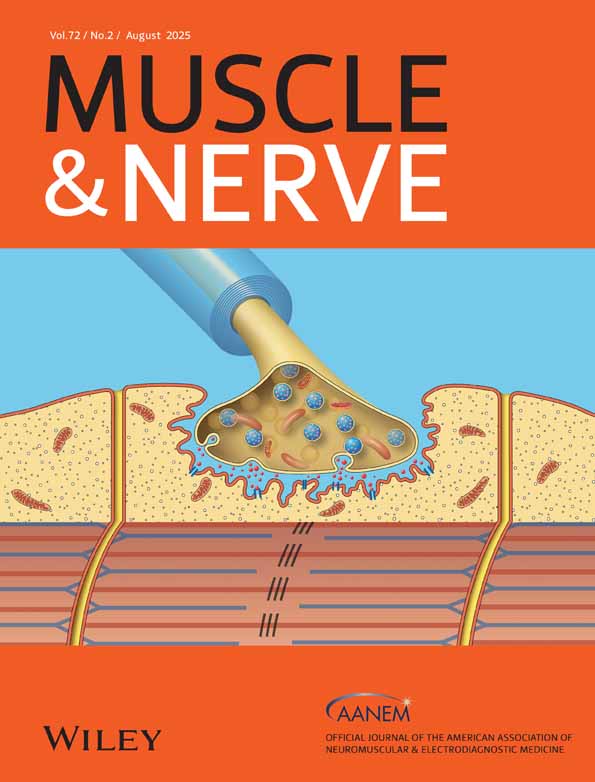Effects of exercise on muscle activation and metabolism in multiple sclerosis
Abstract
We investigated the role of metabolism in muscle fatigue during voluntary exercise in persons with mild multiple sclerosis (MS). Six MS and 8 healthy control subjects performed intermittent, progressive, isometric contractions of the ankle dorsiflexors, during which we measured maximum voluntary force (MVC), inorganic phosphate (Pi), phosphocreatine (PCr), and pH. During exercise. MVC fell sooner in MS, but by the end of exercise the relative decrease in MVC was similar in both groups. In contrast, at the end of exercise Pi/PCr increased to 1.86 ± 0.22 in controls but to only 0.66 ± 0.04 in MS (P < 0.01); likewise, pH was 6.75±0.04 in controls and unchanged (7.06 ± 0.04) in MS (P <0.01). The smaller metabolic change at the same relative exercise intensity suggests a failure of muscle activation that is present even in mild MS. Neurophsyiologic measures of activation indicated some central activation failure and no neuromuscular junction impairment in MS, and suggested that activation failure beyond the muscle membrane(excitation–contraction coupling) may be important in MS. We conclude that metabolic factors do not play a significant role in the development of muscle fatigue during voluntary exercise in mild MS. © 1994 John Wiley & Sons, Inc.




